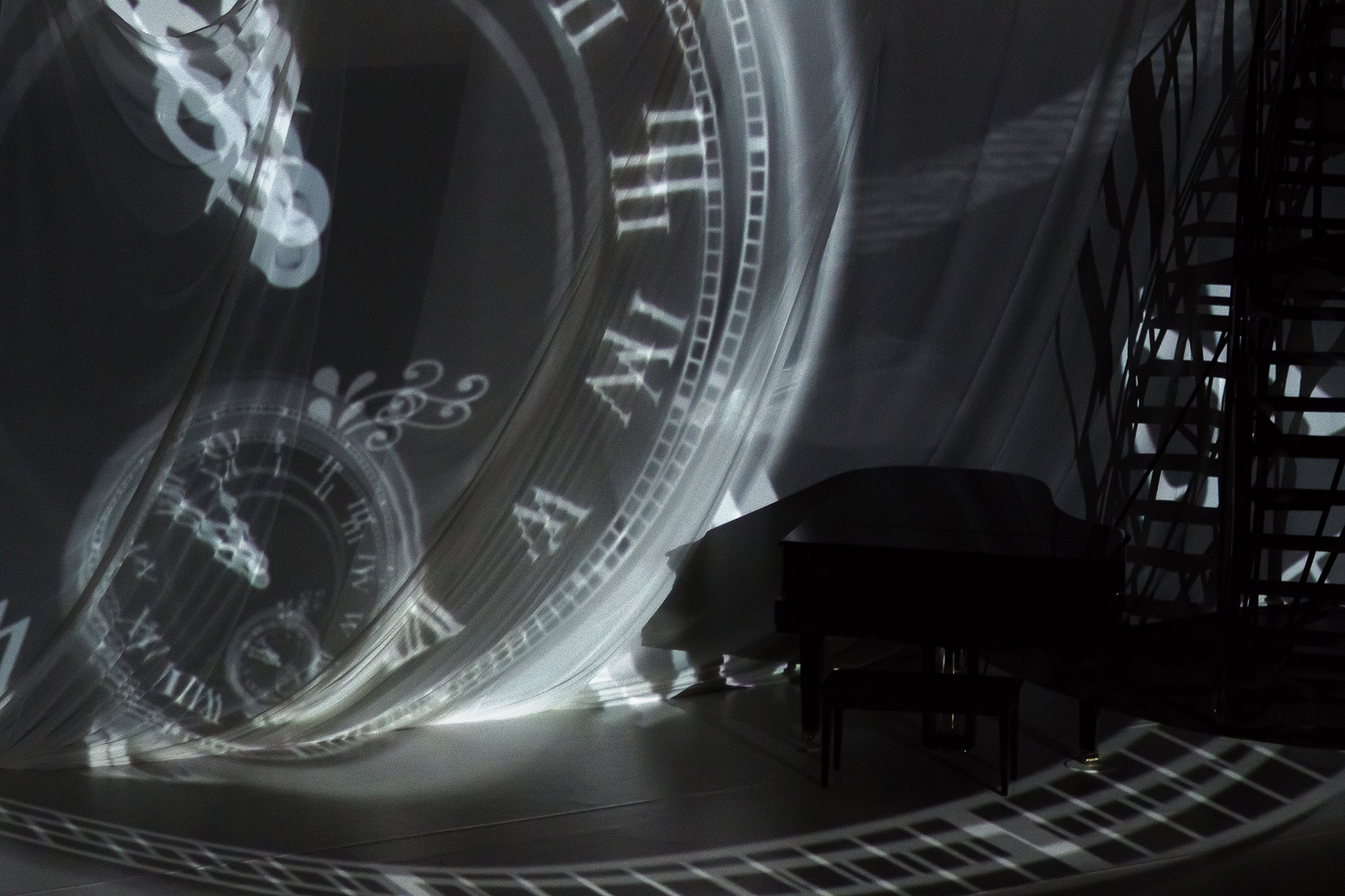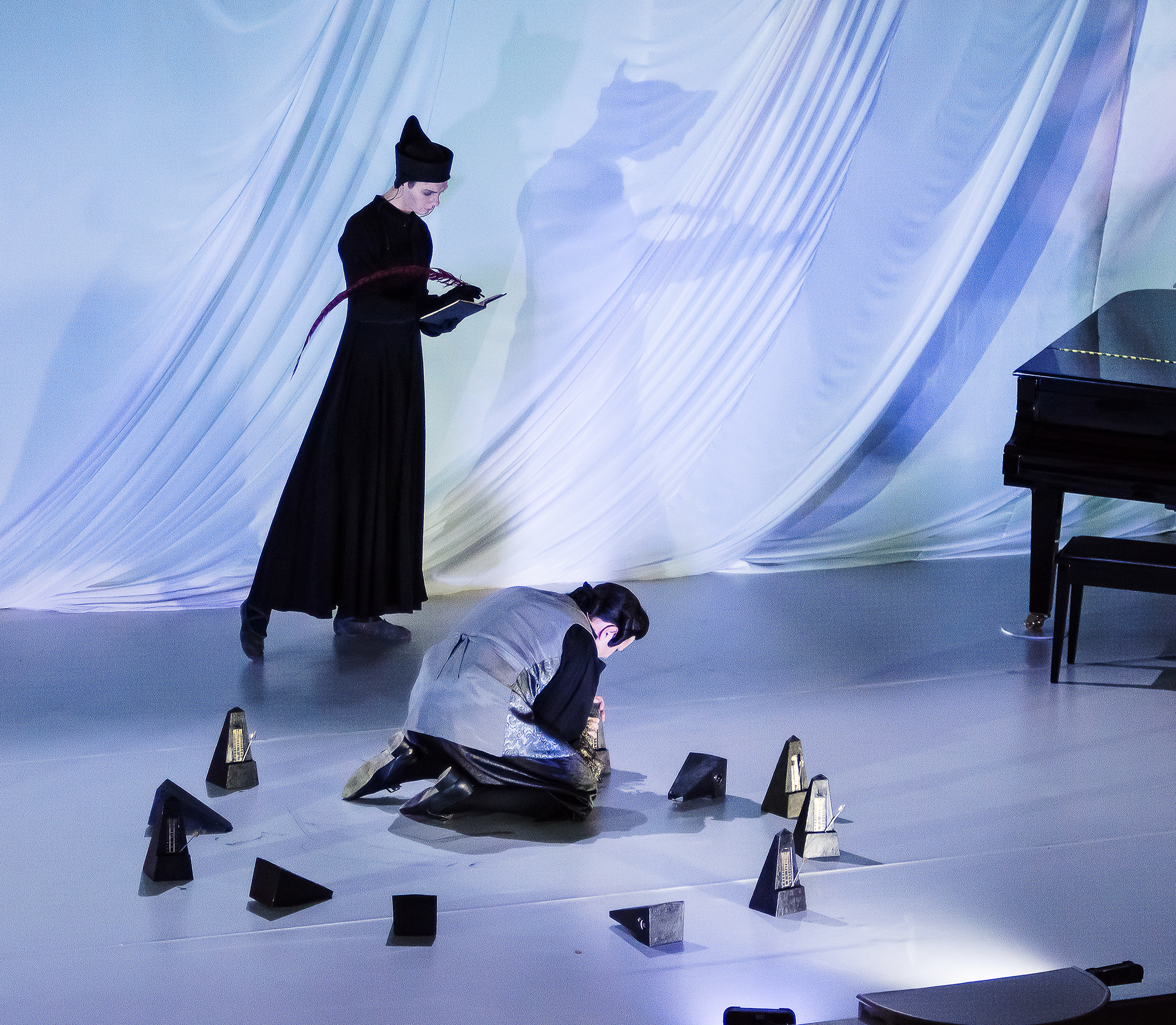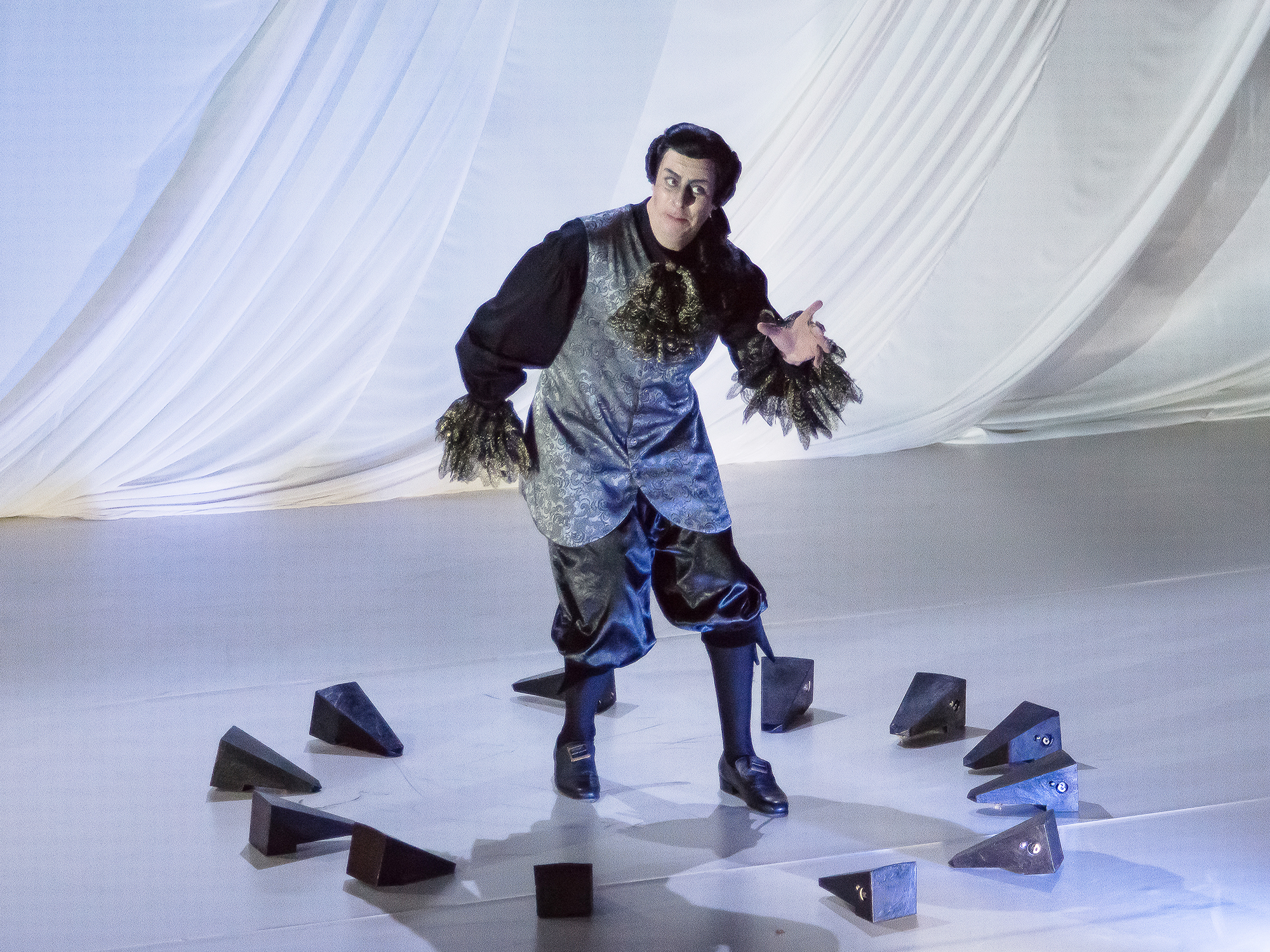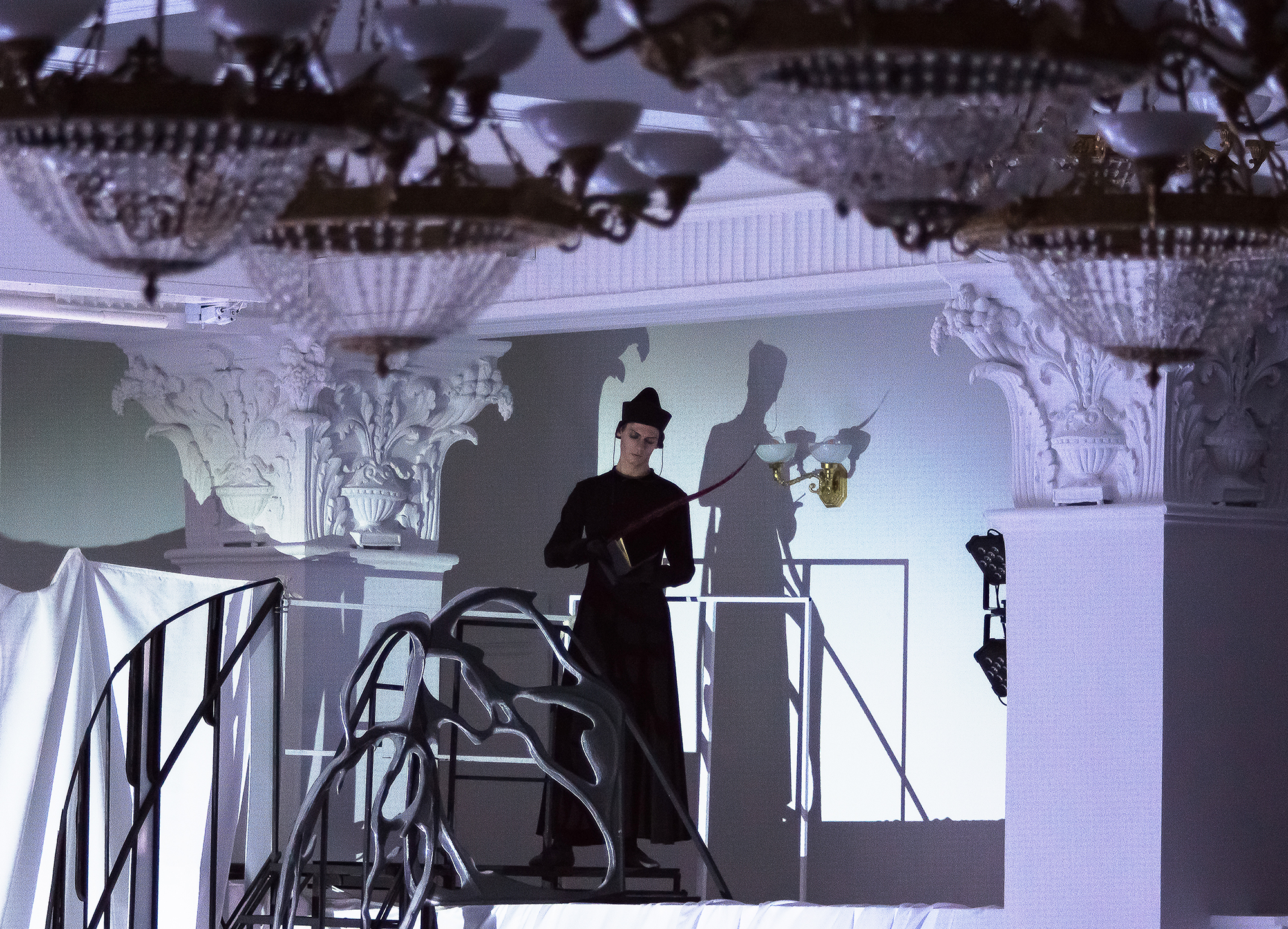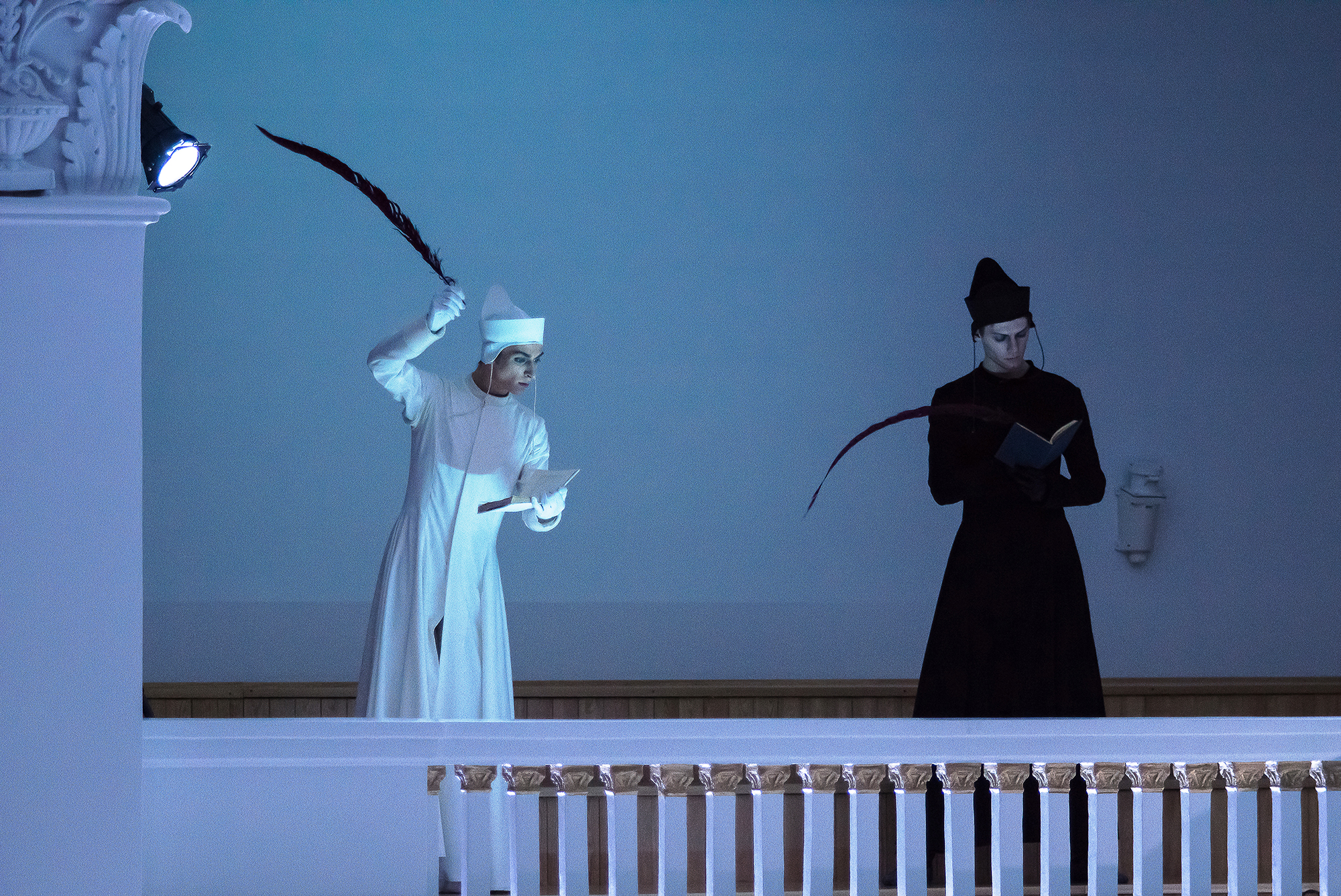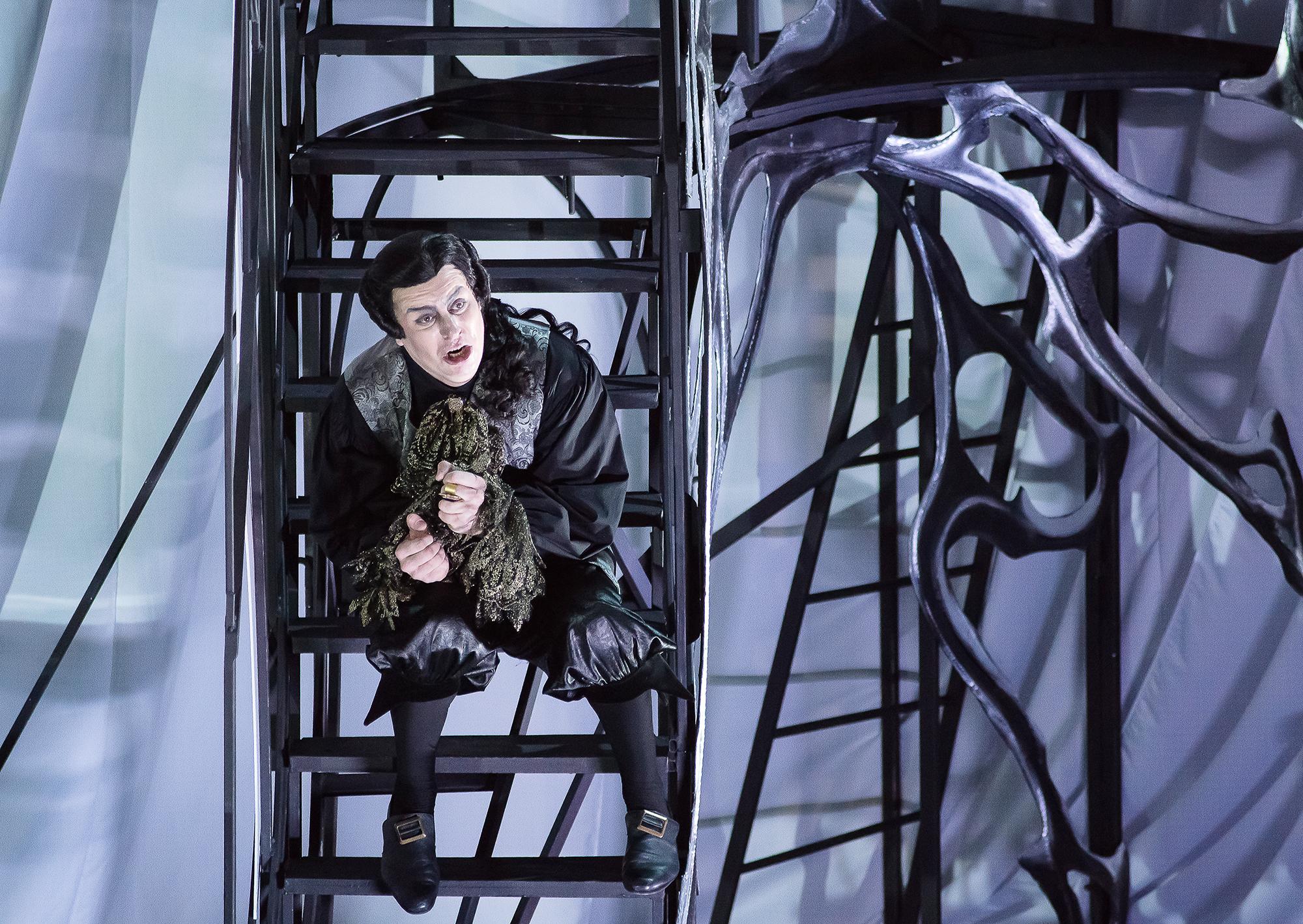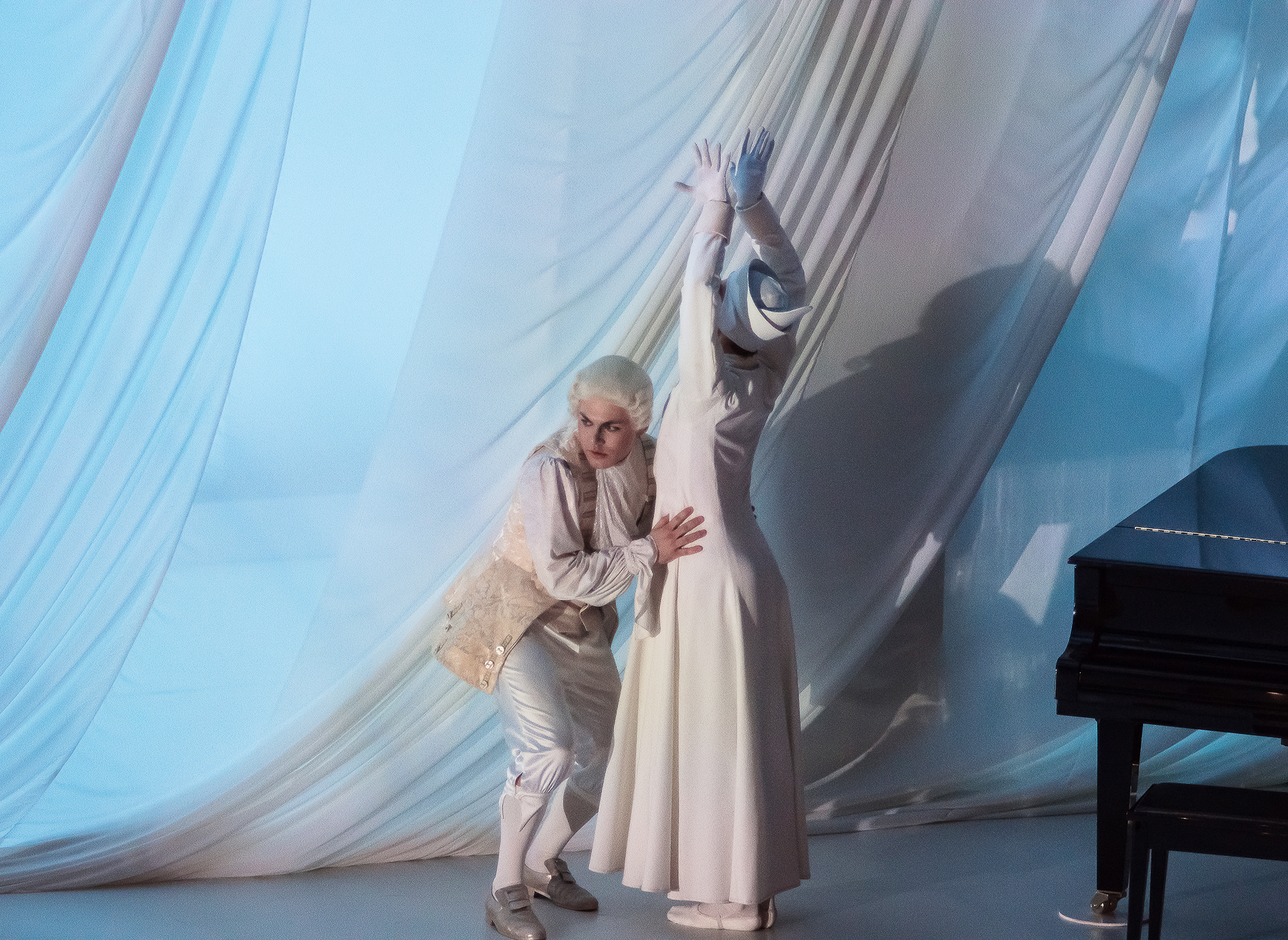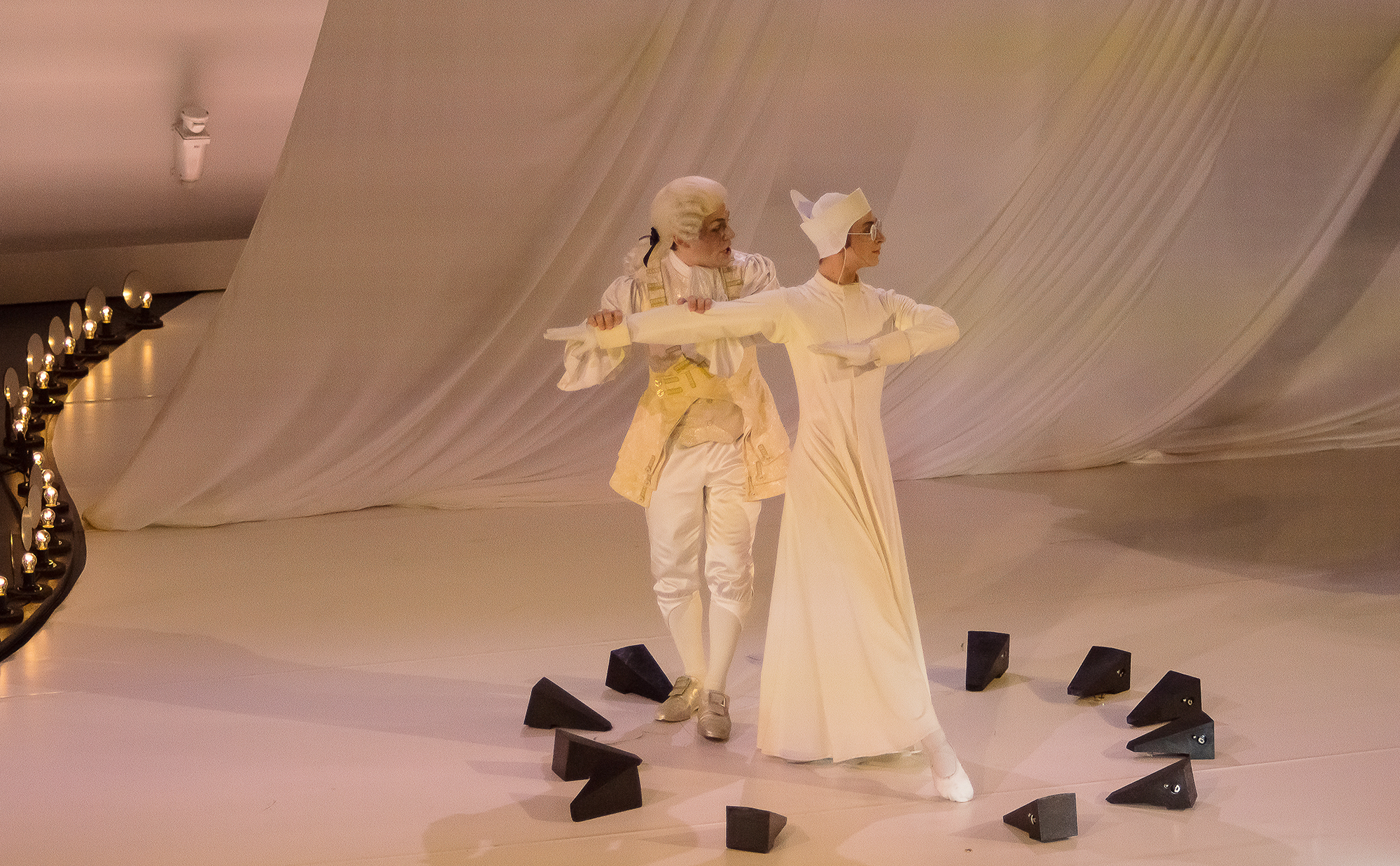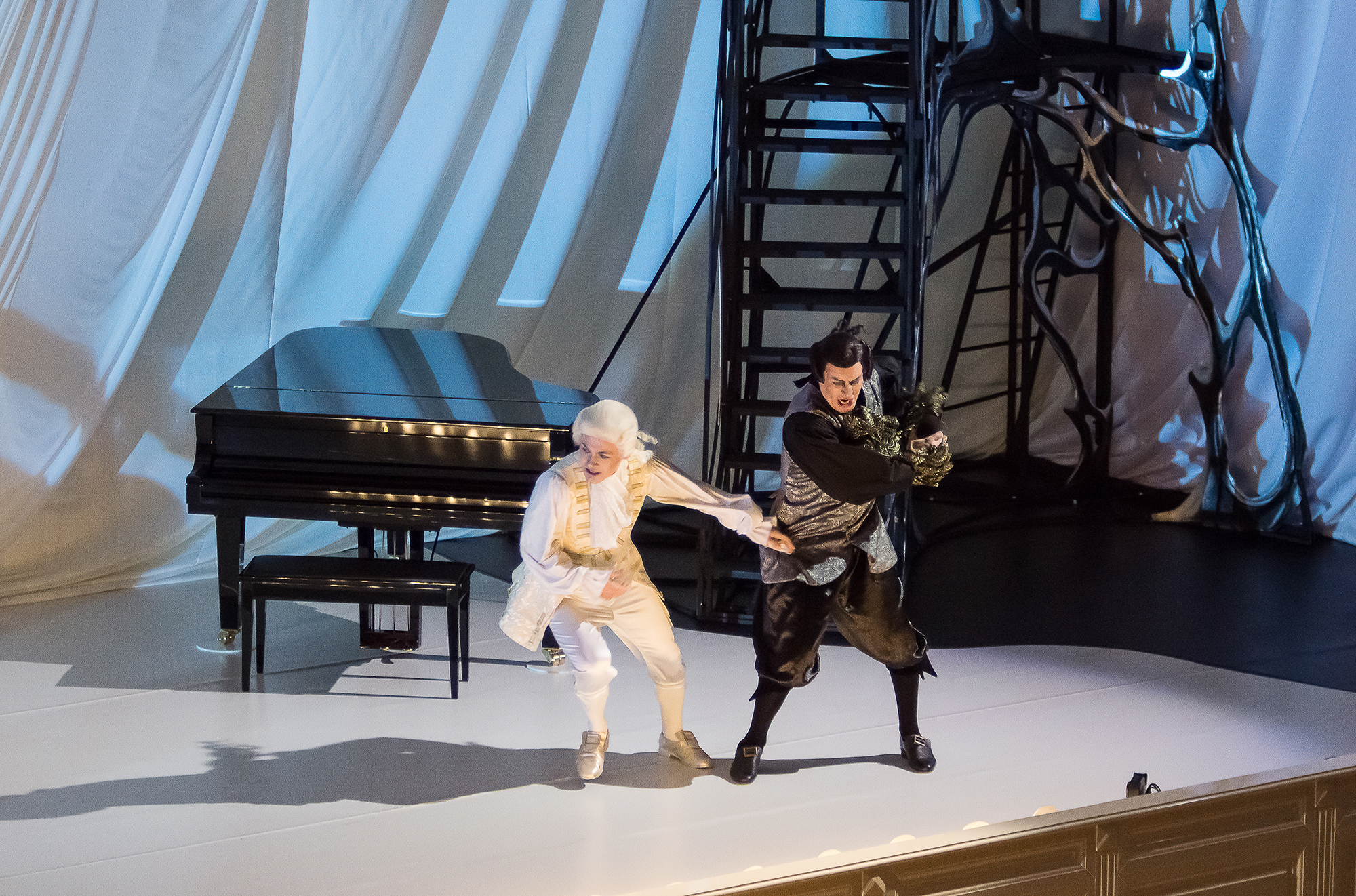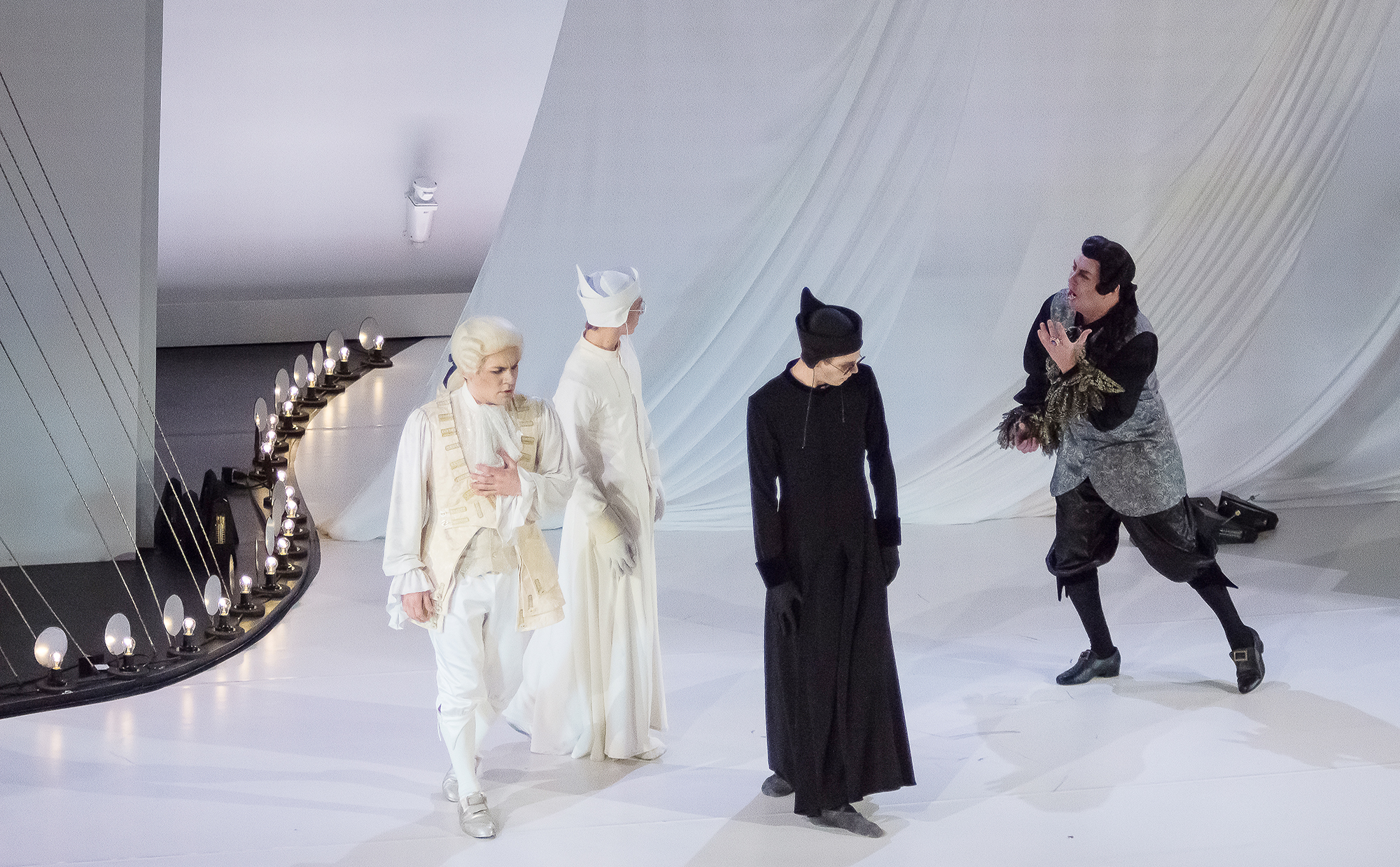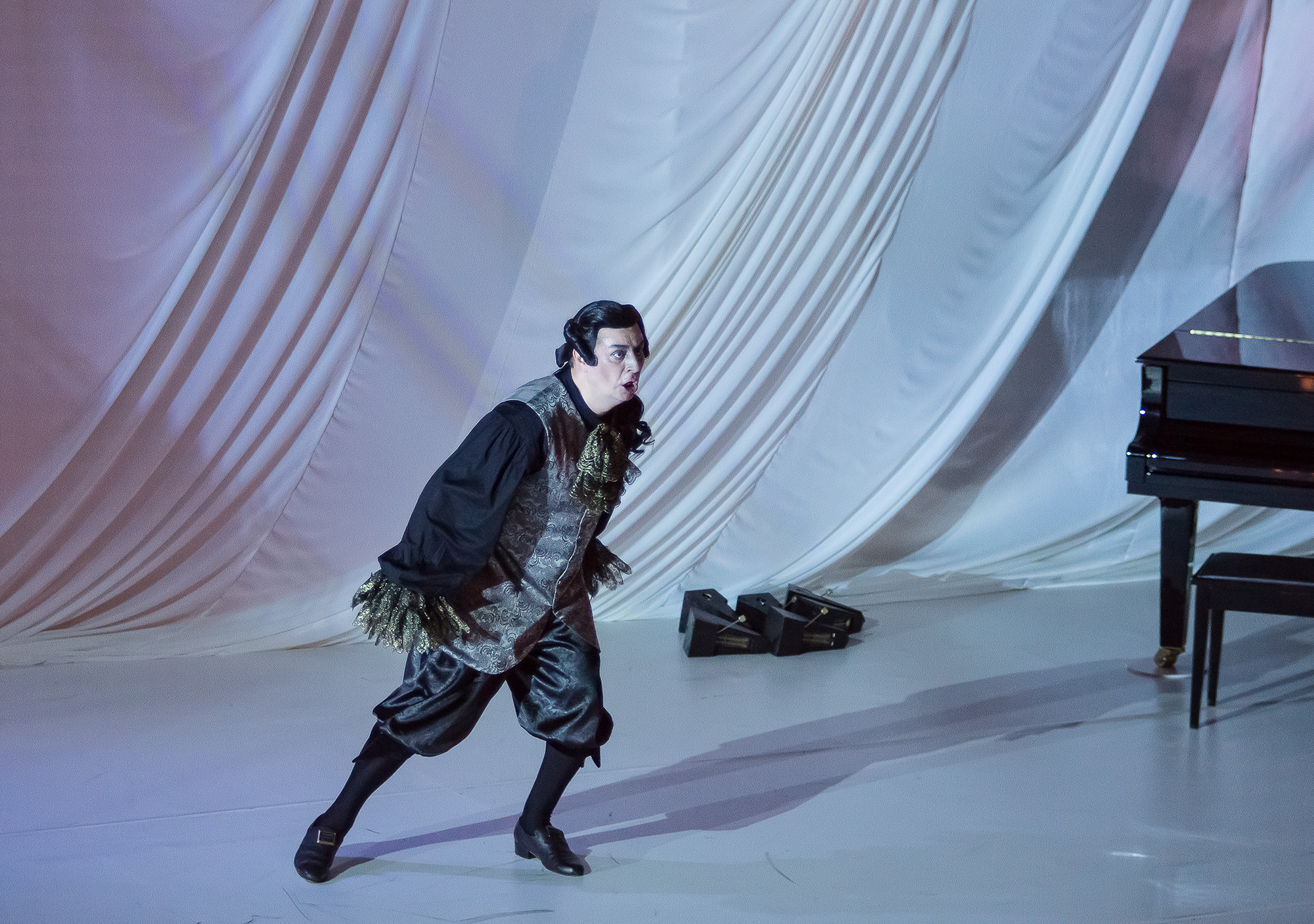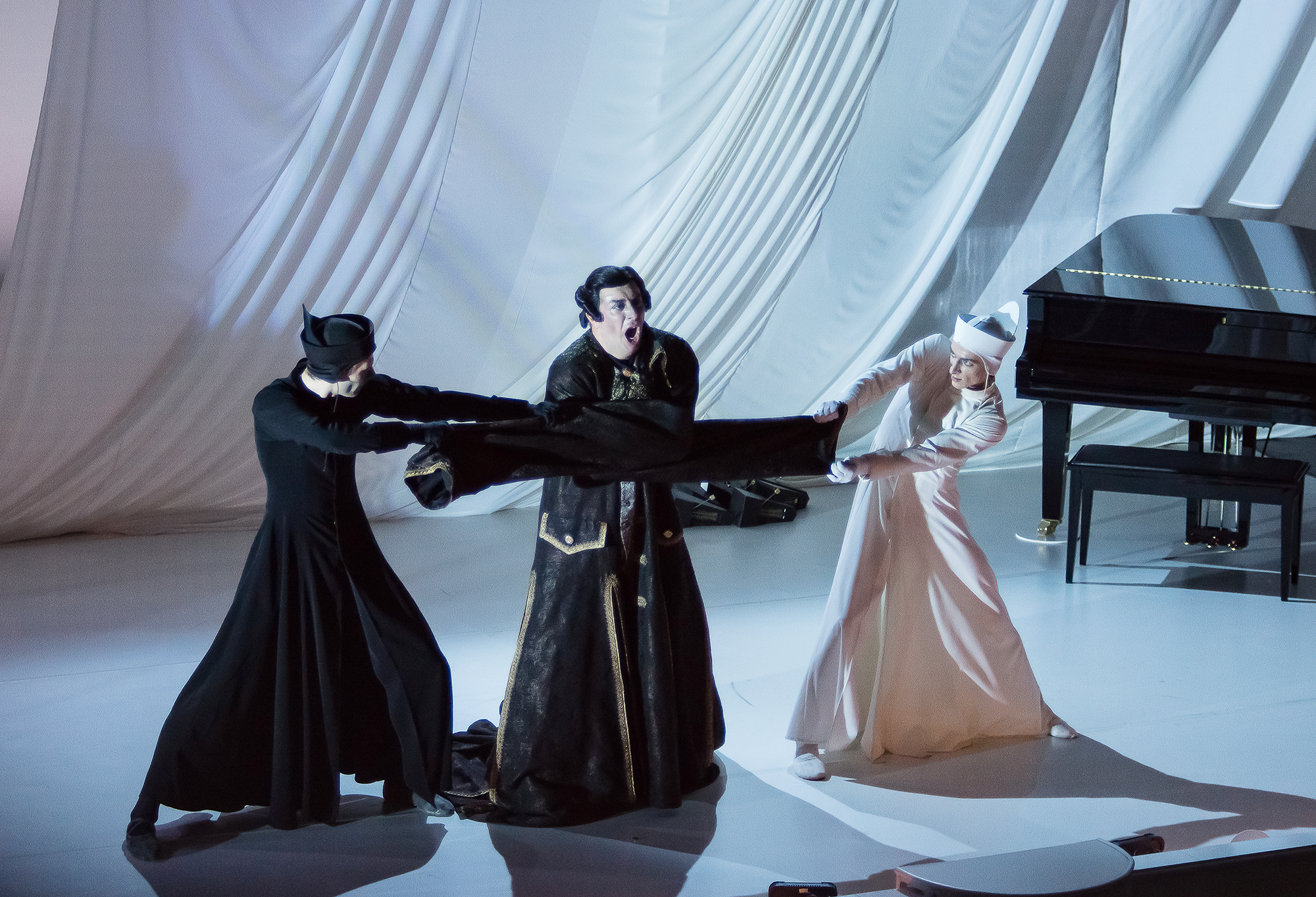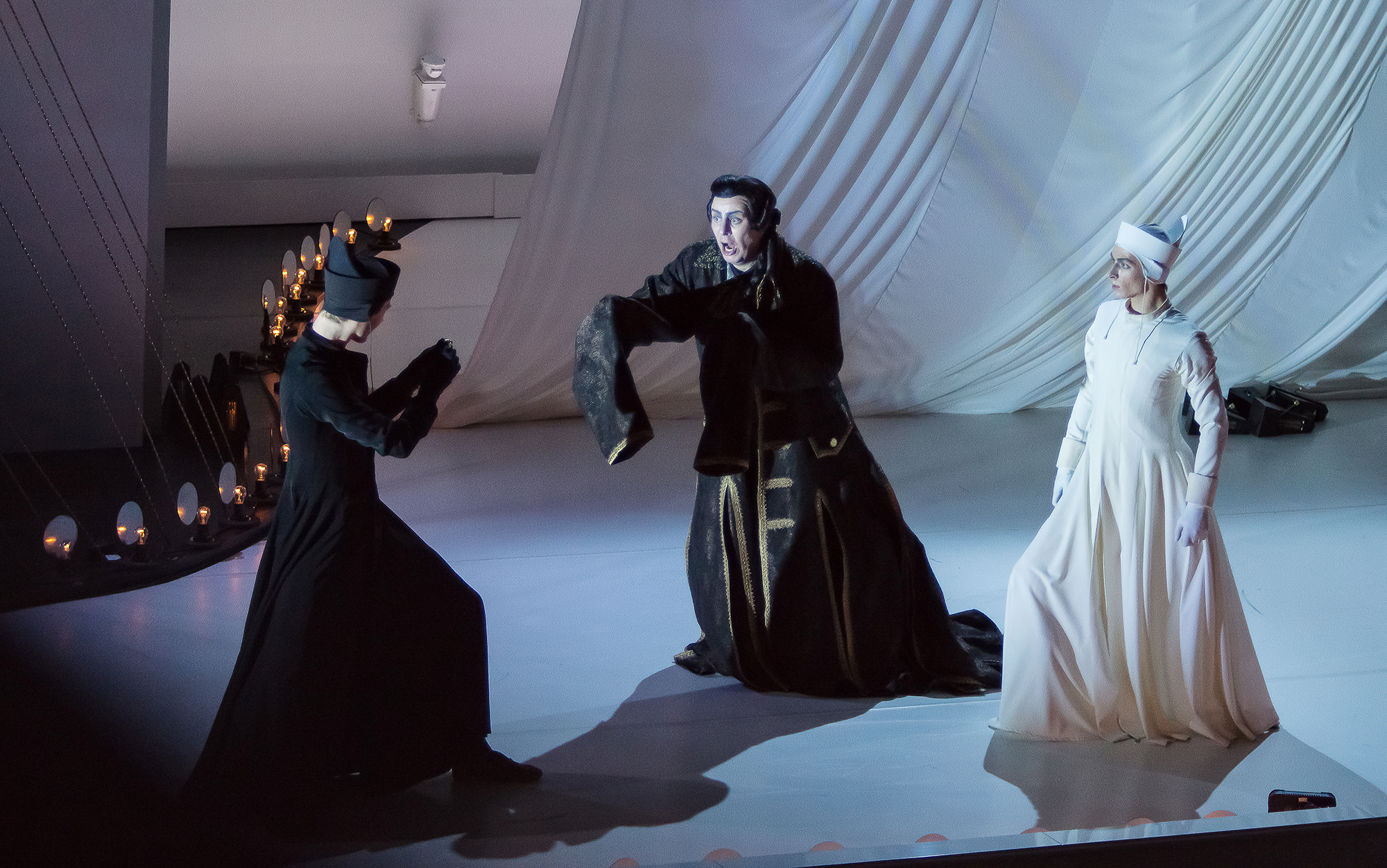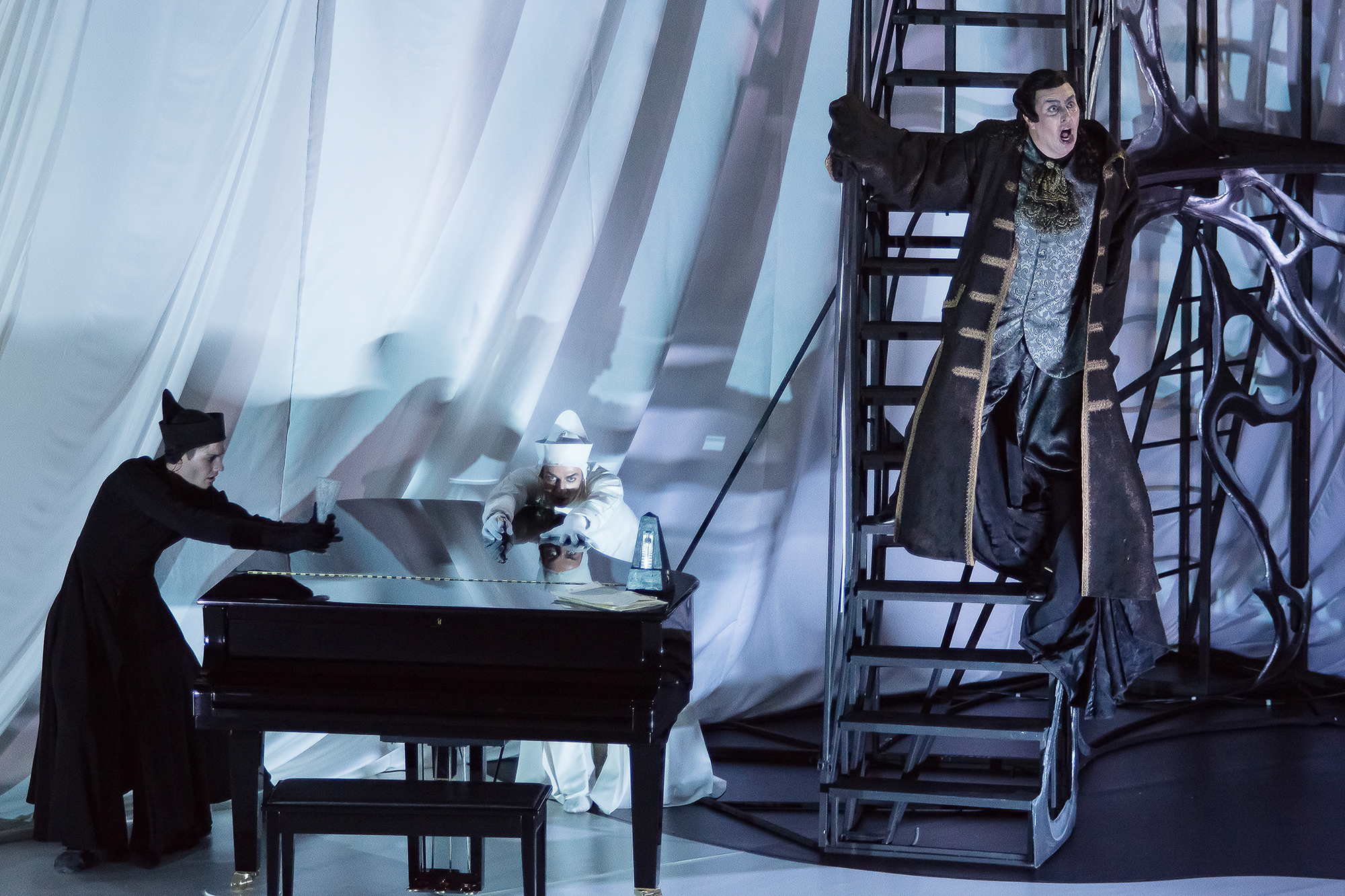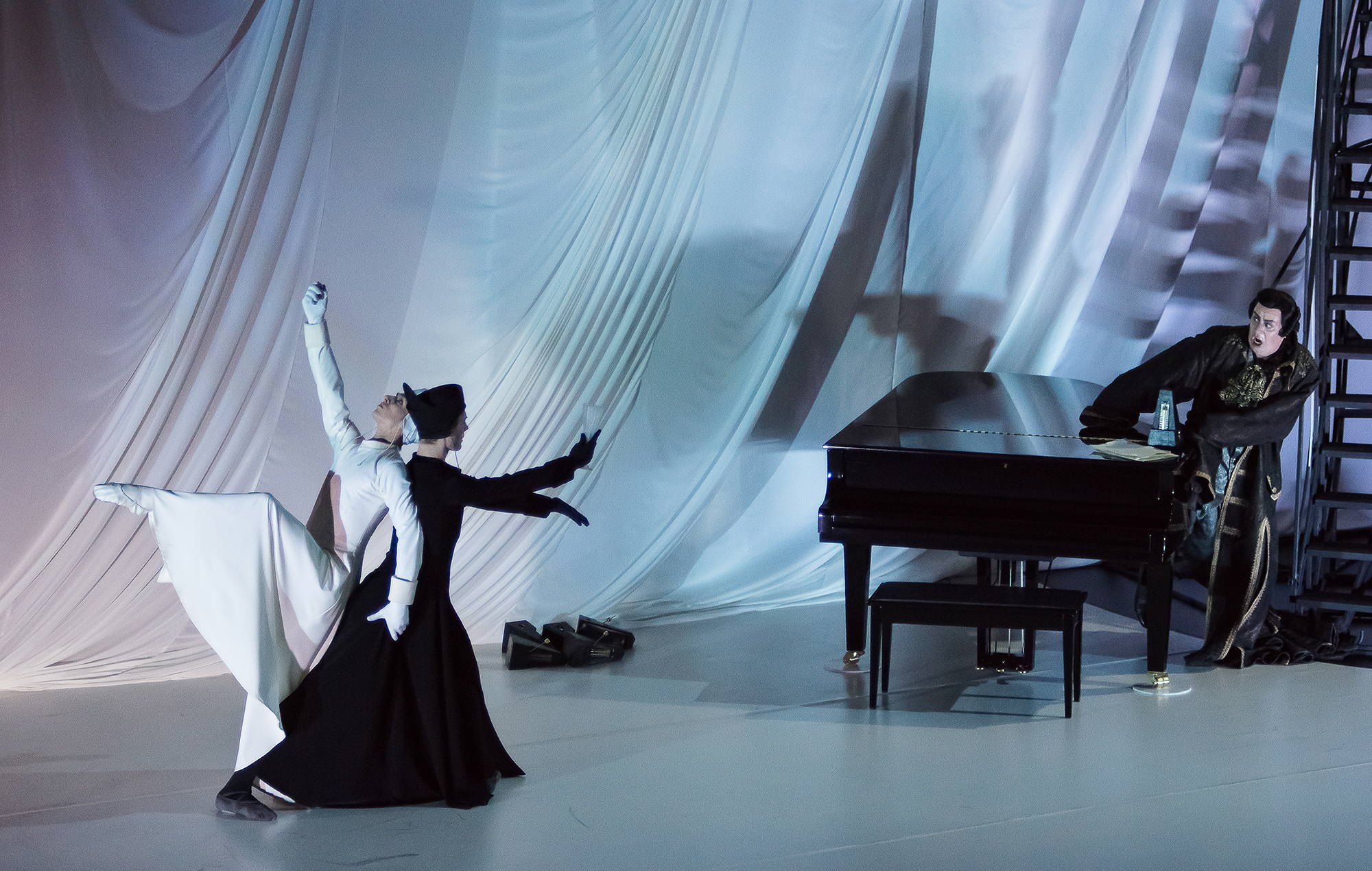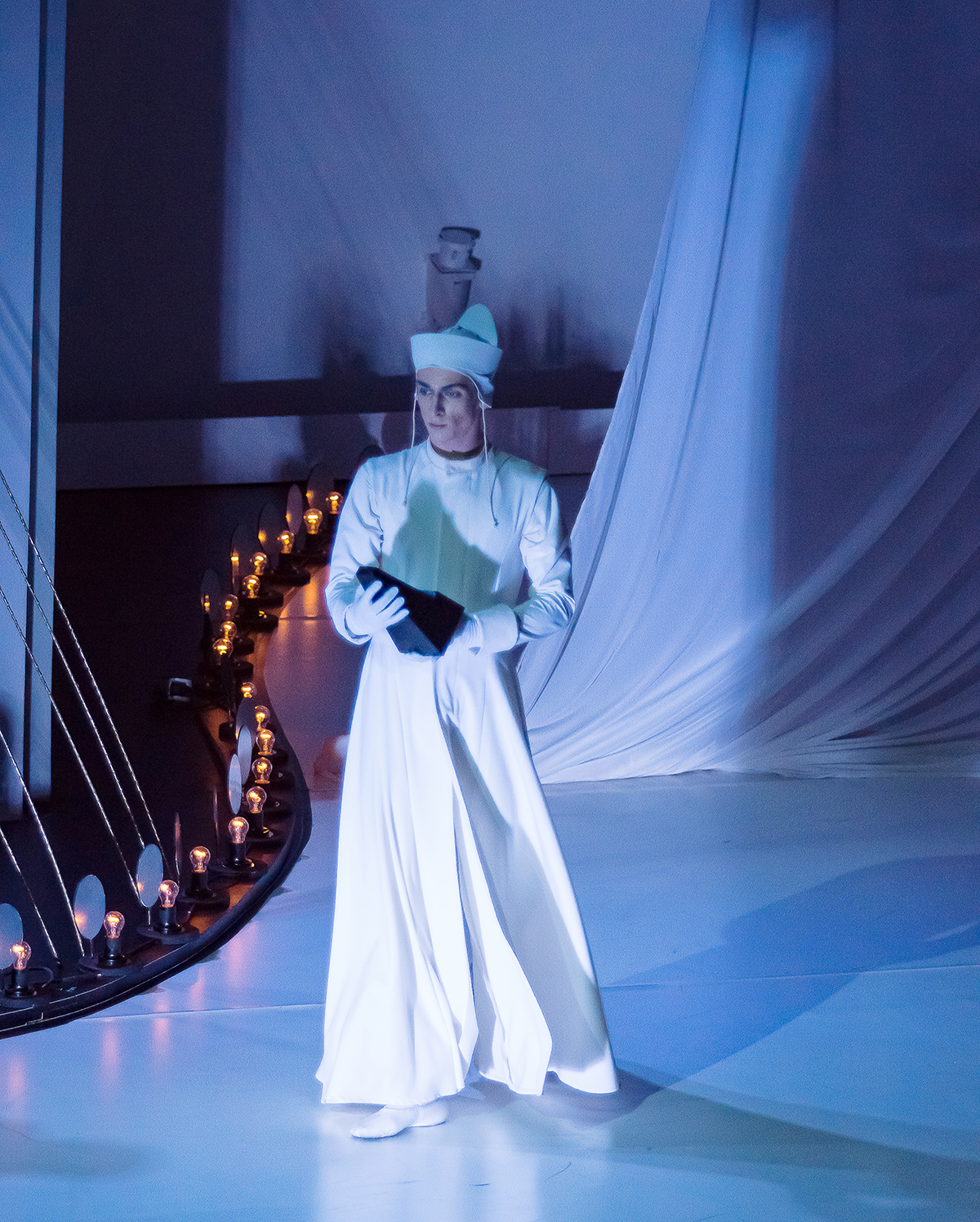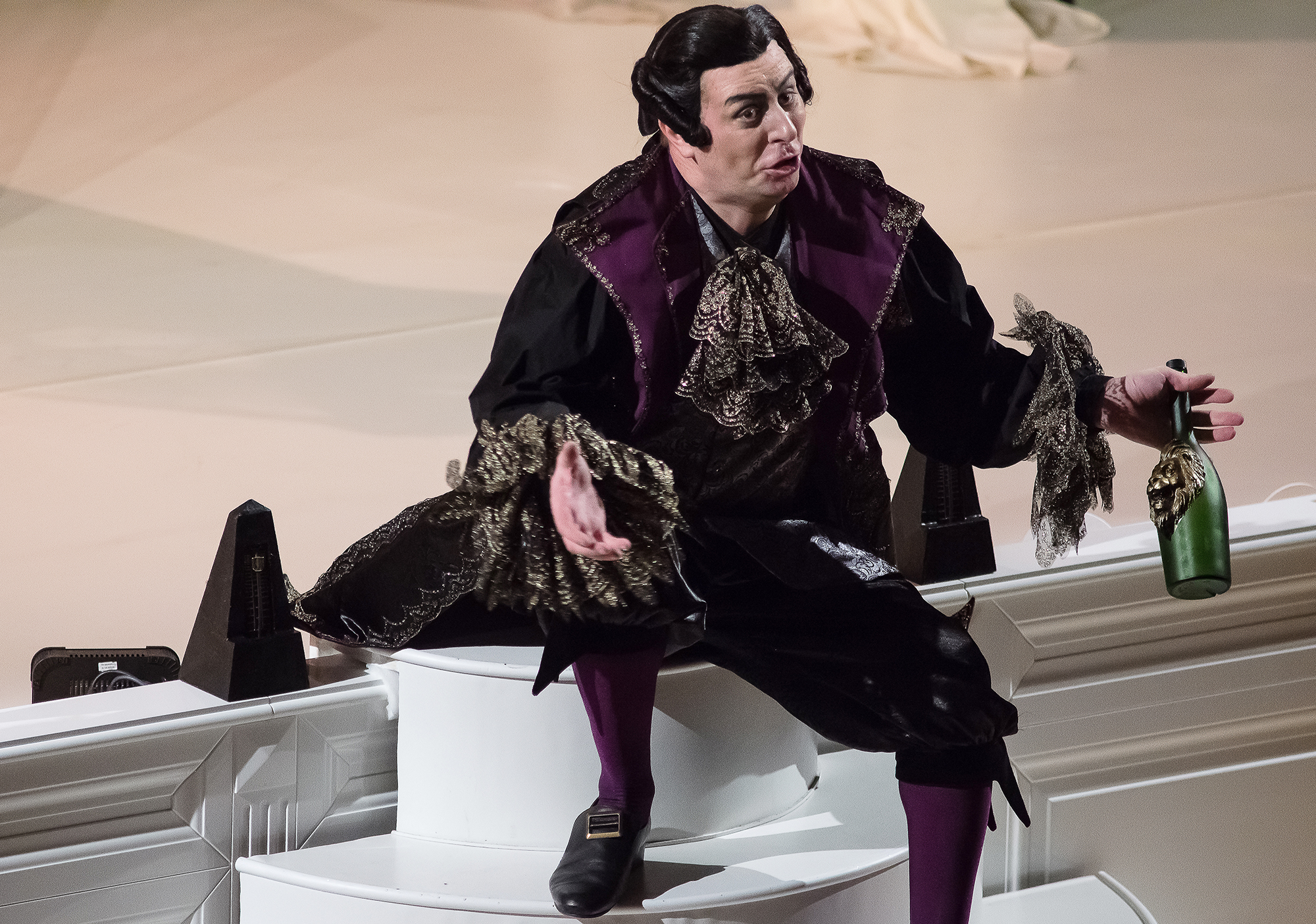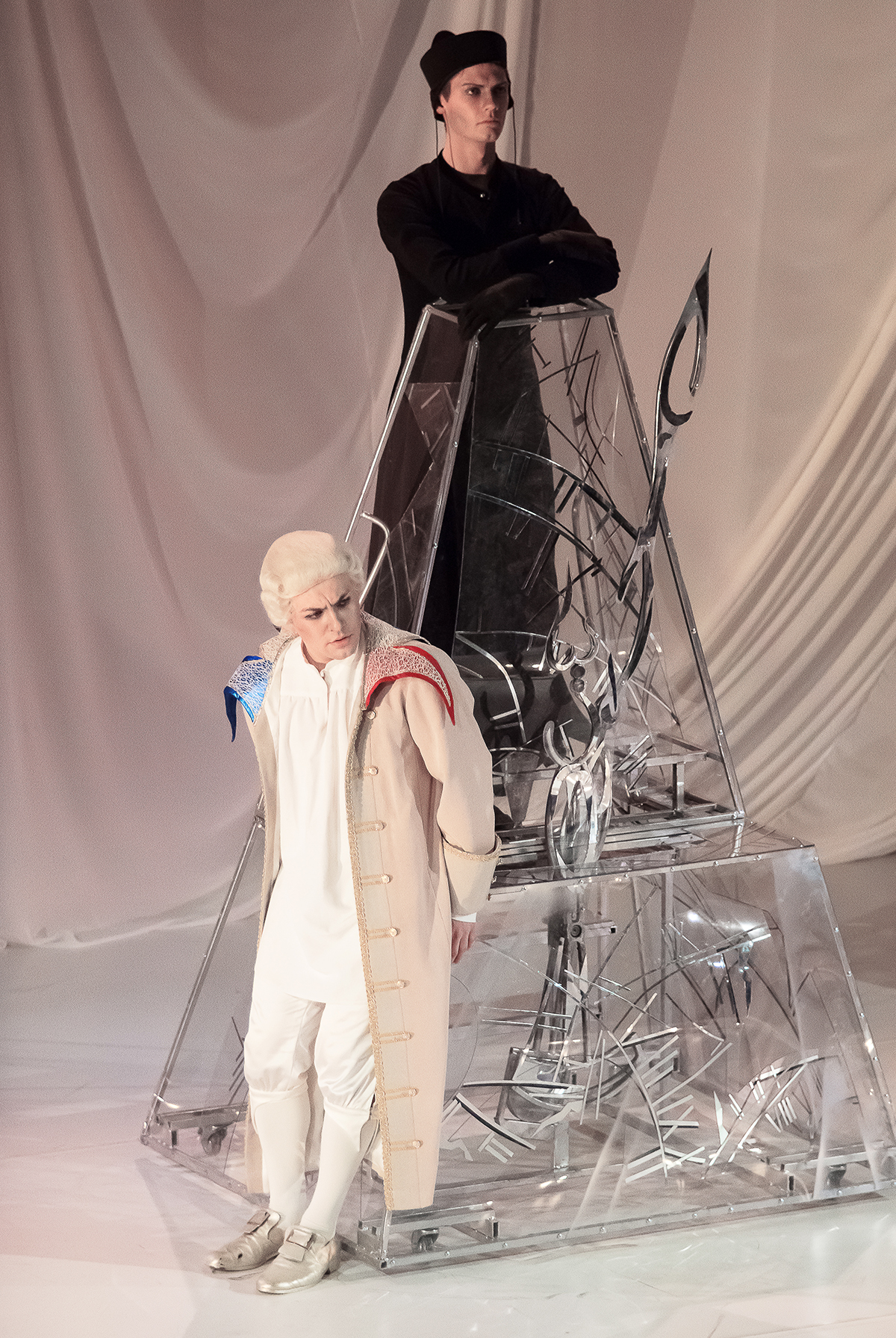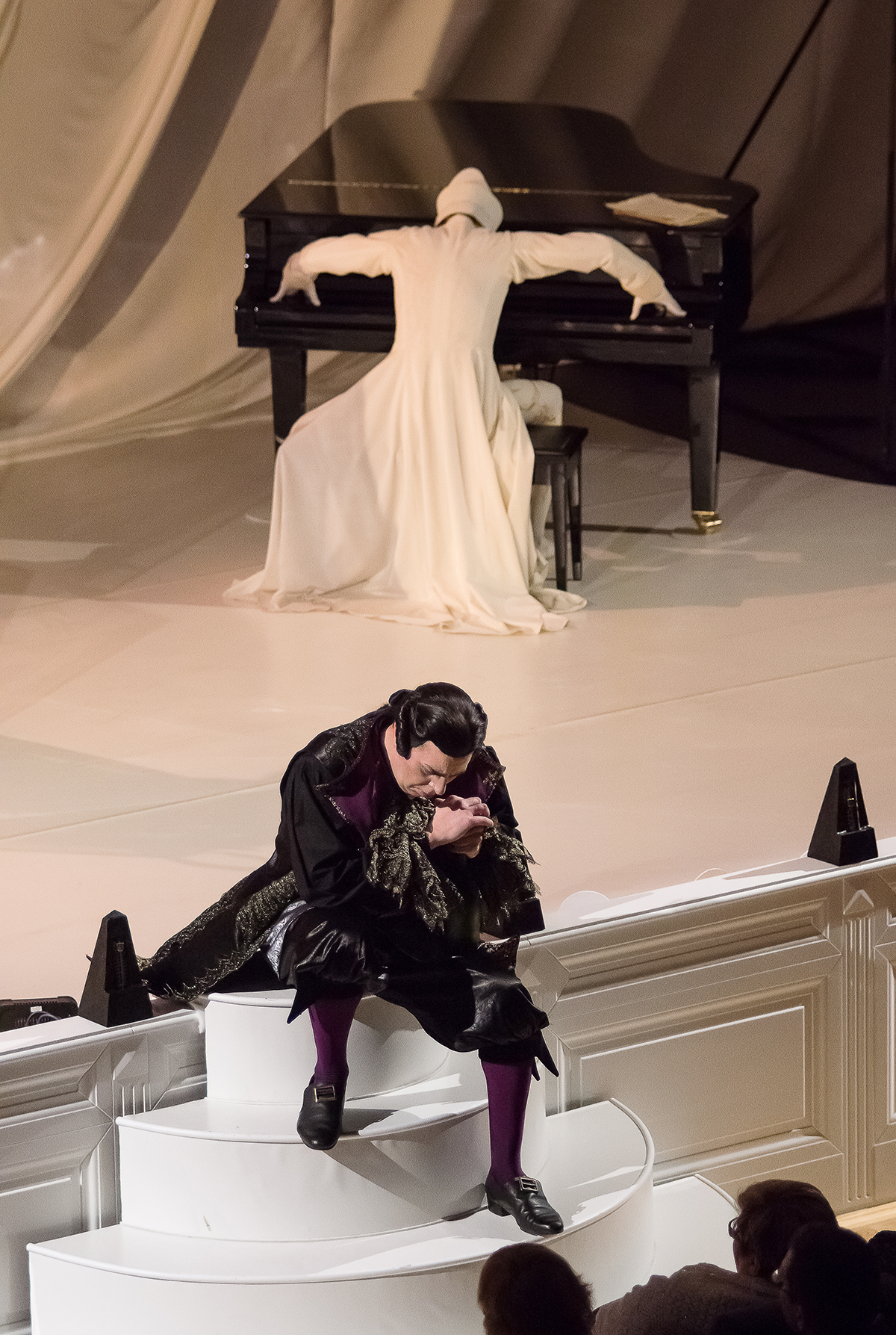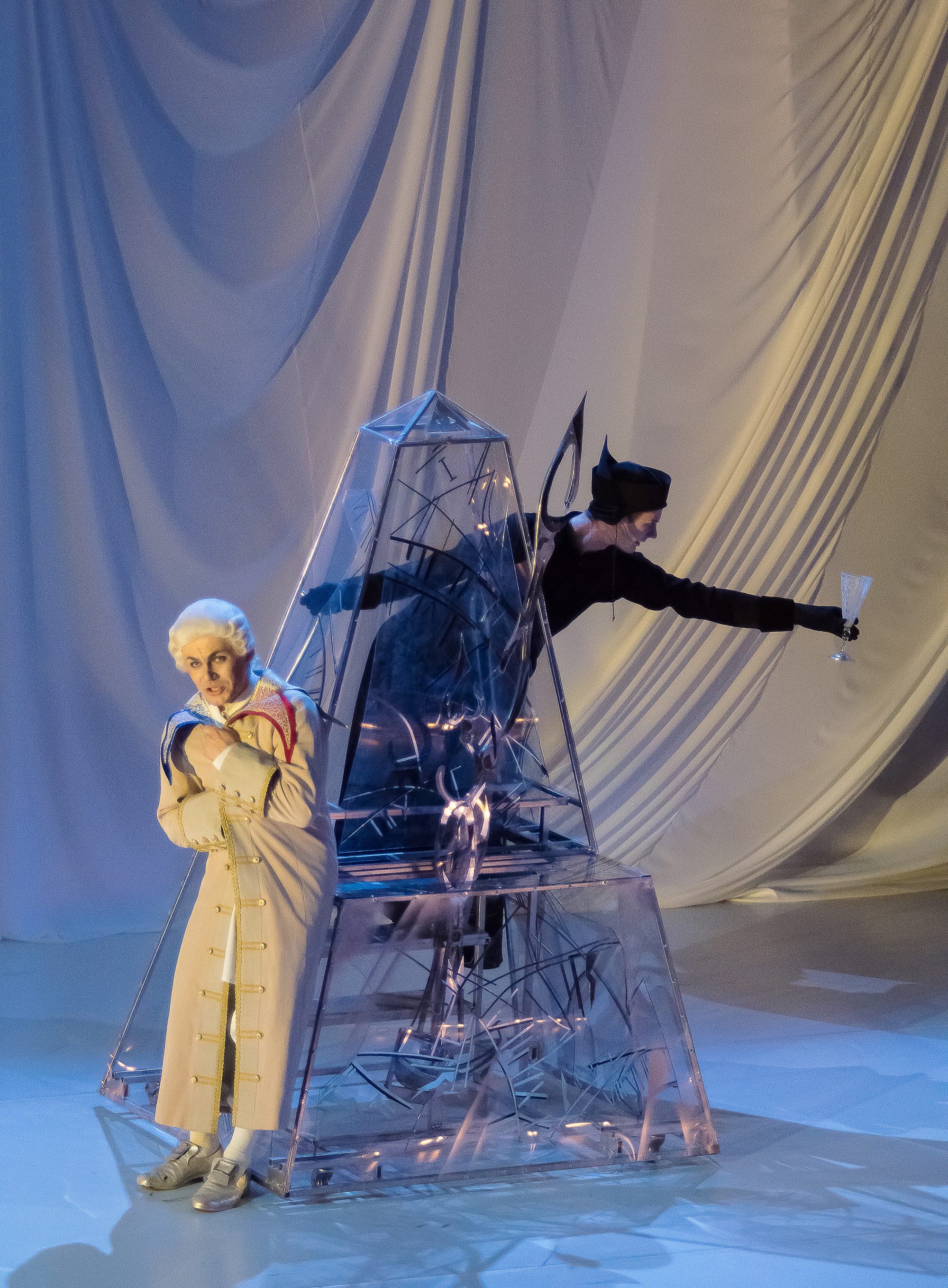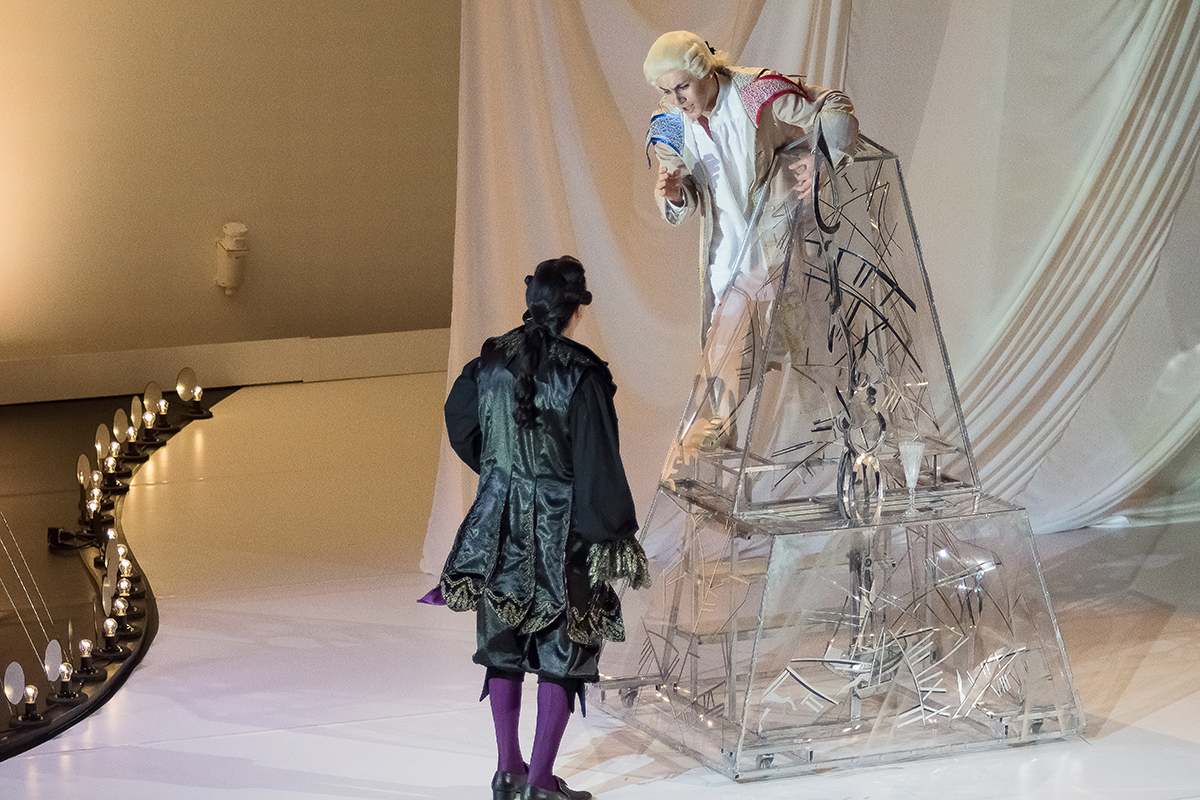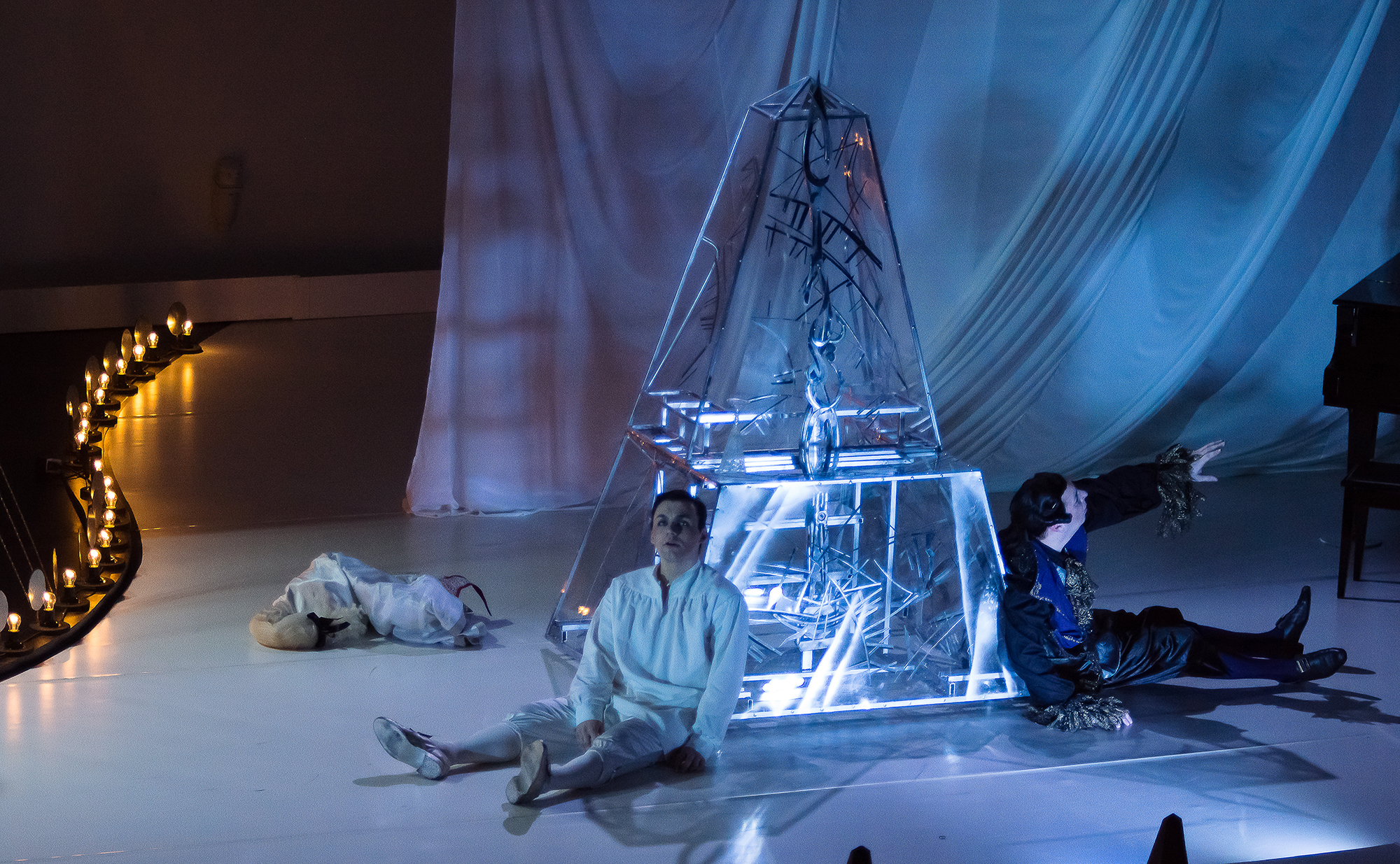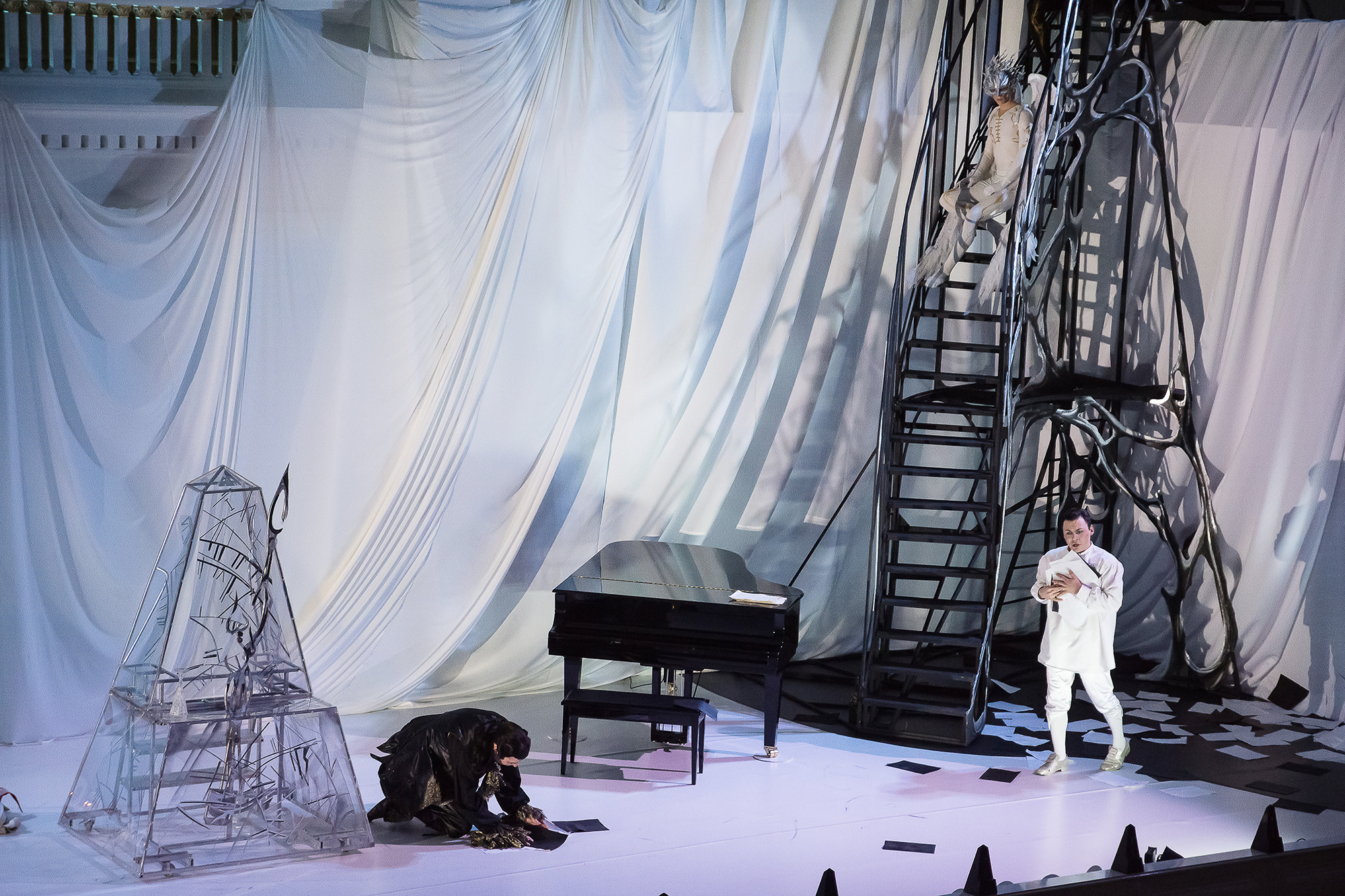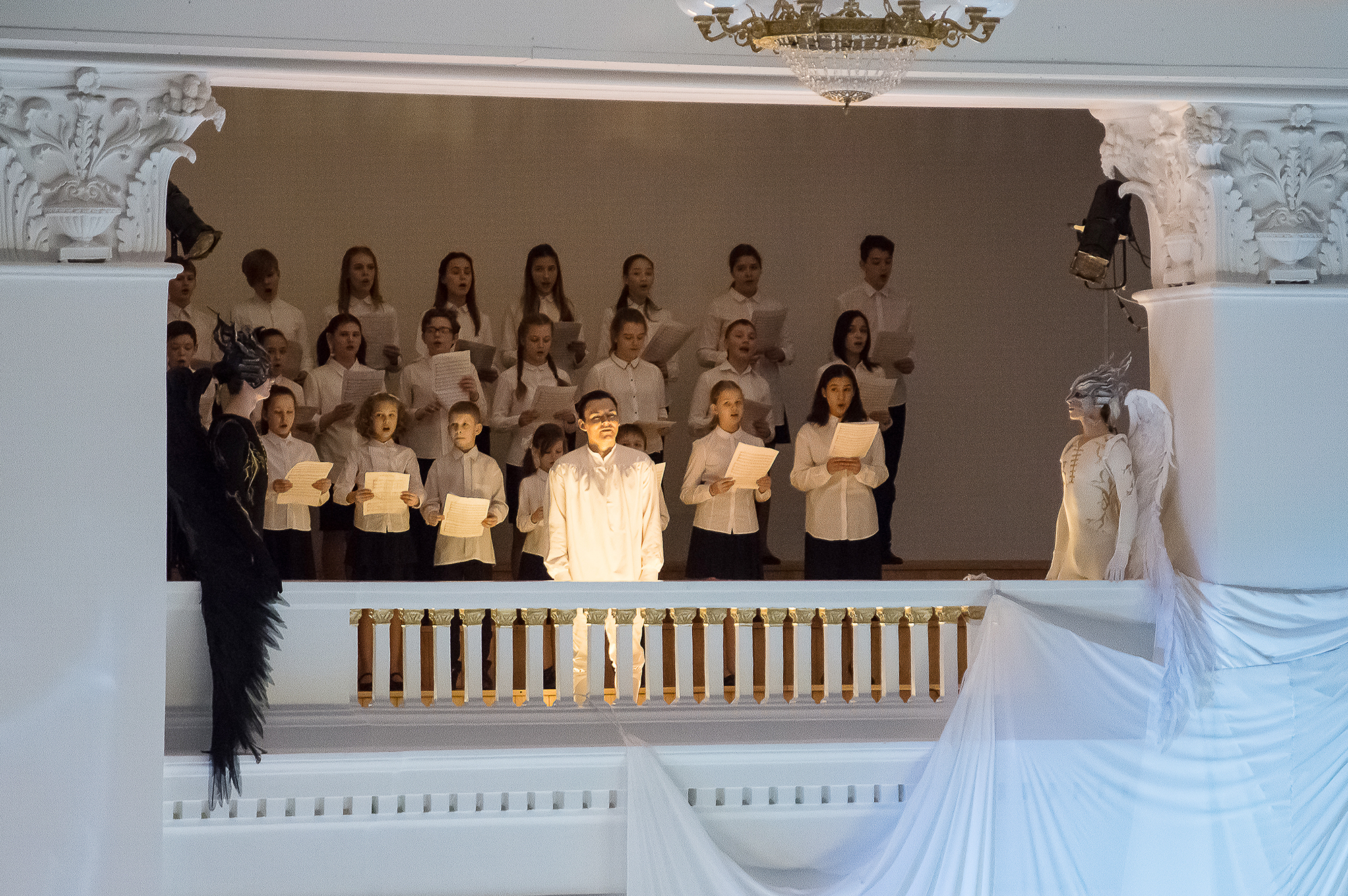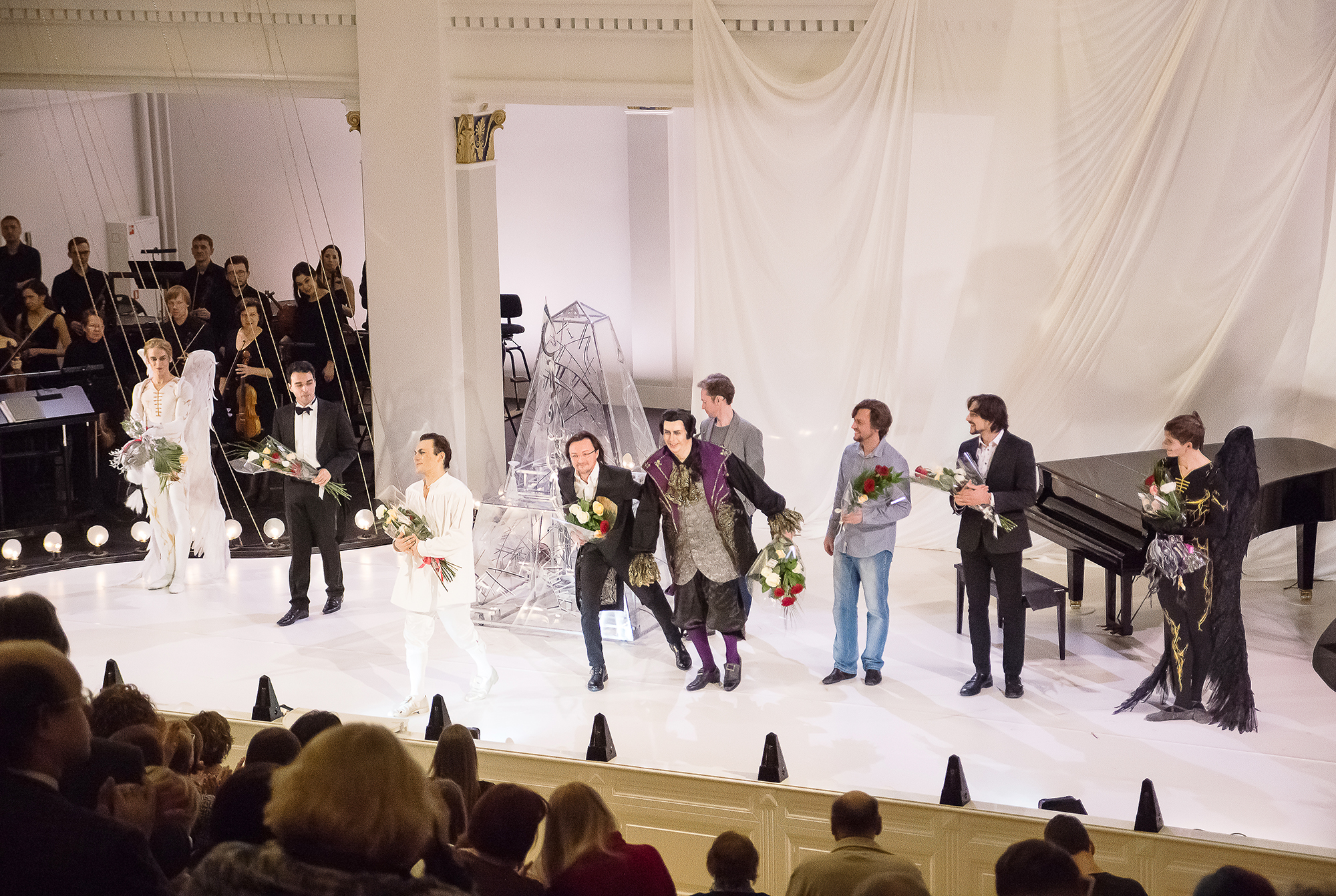Aleko
Un ballo in maschera
La Boheme
Boris Godunov
The Magic Flute
The Twelve Months
Dido and Aeneas
Don Giovanni
Don Pasquale
Eugene Onegin
Bluebeard’s castle
Ivan Susanin
Iolanta
Carmen
Kashchey the Deathless
Prince Igor
The Booted Cat
Little Red Riding Hood
Bibbidi, Bobbidi, Boo!
Die Fledermaus
L’elisir d’amore
Karlsson on the Roof
Moydodyr
Morozko
Mozart and Salieri
Music of the Northern Seas. Thomas and Sally
The extraordinary adventures of Buratino
Аn opera about porridge, milk and a cat
The Oprichnik
Pagliacci
La canterina
The Queen of Spades. The Game
Rigoletto
Le Nozze di Figaro
Il barbiere di Siviglia
Cavalleria Rusticana
Sylva
The Tale of the Dead Princess and the Seven Knights
The Tale of the Fisherman and the Fish
The tale of tsar Saltan
The Tale of the Yeanling
The Miserly Knight
Music over lyrics
The Snow Maiden
Le Rossignol
The Steadfast Tin Soldier
Terem-teremok
Thomas and Sally, or The Sailor's Return
Tosca
La Traviata
Turandot
The Taming of the Shrew
Vocal Lesson
Falstaff
Francesca da Rimini
The Tsar’s Bride
La Bayadere
Graduation performance of the Novosibirsk State Ballet School
Svetlana Zakharova Gala Performance
The Girl with Blue Eyes, or Coppelia
Divertissement
Don Quixote
Jewels
Giselle, ou les Wilis
Cinderella
Carmen Suite
Class Concert
The Little Humpbacked Horse
Le Corsaire
Le Corsaire
Swan Lake
Romeo and Juliet
Rubies
Notre Dame de Paris
Spartacus
The Sleeping Beauty
Theme and Variations
The Three Little Pigs
La Fille mal gardée
Cipollino
Ssss...
Ssss, Radio and Juliet
The Nutcracker
Anniversary of the Siberian ballet school
NOVAT Grand Symphony Concert
Gems of Opera Arias
Waltz. Tango. Foxtrot
Golden days of my spring
A Night of Duets
Come Back to Sorrento
The Times of Vivaldi
Graduation performance of the Novosibirsk State Ballet School
Aida Garifullina Gala concert
Orchestra Voices
Grotesque and humor
For Beloved Women
For Darling Men
“Siberian seasons”International festival closing ceremony
From Siberia with Jazz
Victory Day Concert
Russia Day Concert
Legendary singers of the Novosibirsk Opera
Summer Еvening in NOVAT
Summer operetta night
Mayakovsky & Yesenin
Tunes and rhythms of the world
Music for Us
Music for Us
Music for Us
Our best songs
NOVAT lights the stars
About Love in Different Languages
What Spring is Singing about
Waltz of the Fall
Opening of the International festival “Siberian Seasons”
In the wake of our memory ...
To Vivaldi’s music
Spring holiday in NOVAT
Childhood festival in NOVAT
Festive May
Love Confession
Rachmaninoff and Mentors
Symphonic poems
Choral concert
Feodor Chaliapin the Tsar bass
Masterpieces of Russian romance
Masterpieces of Russian romance
Masterpieces of Russian romance
Masterpieces of Russian romance
Mozart and Salieri
one act opera
music by Nikolai Rimsky-Korsakov
choreography by Vyacheslav Starodubtsev
Credits
Opera is based on Alexander Pushkin’s “Little Tragedy” of the same name
Musical director: Dmitri Jurowski
Conductor-producer: Eldar Nagiev
Stage director and creator of artistic concept: Vyacheslav Starodubtsev
Stage Designer: Timur Guliaev
Lighting Designer, Video Designer: Sergei Skornetsky
Sound design: Ilya Oleinik
Plastique: Sergei Zakharin
Choreography: Kirill Novitsky
Choirmaster-producer: Vyacheslav Podyelsky
The performance contains a number of excerpts from Mozart’s Requiem as well as other pieces. Opera soloists, ballet artists, main chorus, children’s chorus and the theatre’s orchestra are engaged in this production.
Premiered on January 27, 2018
55 minutes
without an intermission
performed in Russian
Each of Pushkin’s “Little Tragedies” explores one of human vices. Following Pushkin’s plot N. Rimsky-Korsakov displays the grievous one of them- Envy in his opera “Mozart and Salieri”. A craftsman is deeply envious of a genuine talent. Although there are no trustworthy evidences of Salieri being responsible for Mozart’s death, A.S. Pushkin stigmatized him as poisoner for good. What is more important: meticulous work or a stroke of genius; is a genius man capable of villainy – ageless questions that disturbed both the poet and the composer.
FIRST SCENE
Salieri is deep in his thoughts. He exceled at music through hard work and now he is deeply and sorely envious of Mozart.
Enters Mozart. He brought over a blind fiddler, who played tunes from Mozart’s operas at an inn. The fiddler performs an aria from “Don Giovanni”. Salieri sends him away in anger.
Mozart shows his new musical piece to his friend. Salieri is amazed, though openly discontent.
They decide to dine together and then leave. While being alone, Salieri makes a decision. “…I have been chosen to stop him - otherwise, all of us die…” — he says drawing out the poison.
SECOND SCENE
A room at “Golden Lion” inn. Mozart and Salieri are talking.
Mozart tells his friend of a strange man in black clothes, who came over a couple days ago – he commissioned Requiem and then never showed up again. “By day and night my man in black would not leave me in peace”— he confesses.
Salieri tries to soothe Mozart and suggests that he uncork a bottle of champagne, as advised by his companion Beaumarchais or to reread “Le Nozze di Figaro”. Mozart asks whether it is true that Beaumarchais had poisoned someone, and hears the answer: “too laughable a fellow for such a serious craft”. He was a genius, objects Mozart, and “genius and evildoing are incompatibles”.
Salieri hesitates for a second and then throws poison into Mozart’s glass. Deep in his thoughts Mozart drinks his wine, then sits down at the piano and plays Requiem. Salieri cries. Mozart stops playing: “But now I'm feeling sick and kind of heavy. I should go and sleep”.
Salieri is alone again. Heavy doubts crawl into his soul as he is recollecting Mozart’s words of genius and evildoing being incompatible. Then what? Does it mean that he, Salieri, is not genius? “That is not true – he cries desperately - And Buonarotti? Or is it a legend of the dull-witted, senseless crowd while really the Vatican's creator was no murderer?” His exclamation is left unanswered.
